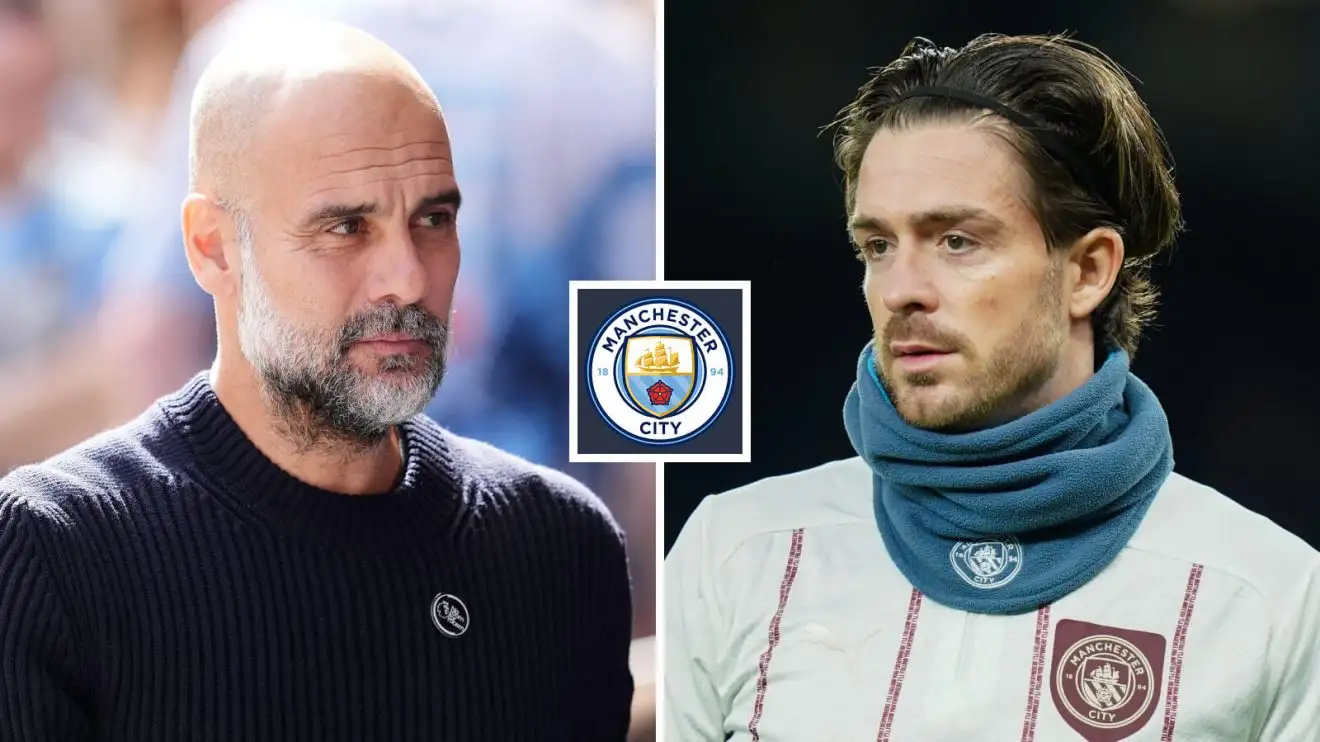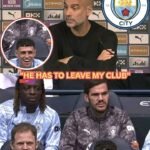Pep Guardiola’s awkward Jack Grealish run-in proves mistake Arne Slot should never make

The relationship between a football manager and his players extends far beyond the tactical whiteboard and training ground drills. It encompasses psychology, man-management, communication, and the delicate art of balancing individual egos with collective success. In the modern game, where player power has reached unprecedented heights and social media amplifies every gesture, the stakes of getting these relationships wrong have never been higher. The deteriorating relationship between Pep Guardiola and Jack Grealish at Manchester City serves as a stark reminder of how even the most successful managers can struggle with player management, offering valuable lessons for Arne Slot as he continues to build his project at Liverpool.
The Unraveling of a Relationship
The signs of discord between Guardiola and Grealish have been mounting for months, but recent events have brought their fractured relationship into sharp focus. Reports suggest that the once-promising partnership between the Catalan perfectionist and the English playmaker has deteriorated to the point where Grealish is expected to leave the Etihad Stadium before the current season concludes. This represents a dramatic fall from grace for a player who was instrumental in City’s historic treble-winning campaign of 2022-23.
The most telling illustration of their estrangement came during the recent Oasis reunion concert at Heaton Park. Despite both being devoted fans of the Gallagher brothers’ iconic band, Guardiola and Grealish maintained a conspicuous distance throughout the evening. An observer noted how the pair, though positioned in the same VIP section, remained at opposite ends of the stand, with no visible interaction between them. The symbolism was unmistakable: two individuals who should have been united in celebration instead reflected the broader breakdown in their professional relationship.
Guardiola, attending with his daughter Maria, appeared focused on family time, while Grealish was described as being in “full spirits, belting every word” of the classic Oasis anthems. The contrast in their demeanor and their deliberate separation spoke volumes about the current state of affairs between manager and player. For a club where Noel Gallagher has designed kits and celebrated title wins on the pitch, the image of two key figures unable to share the same space at an Oasis concert was particularly poignant.
The Decline of Grealish’s City Career
To understand the current crisis, one must examine the trajectory of Grealish’s Manchester City career. When he arrived from Aston Villa in 2021 for a British record fee of £100 million, expectations were stratospheric. The Birmingham-born winger was seen as the missing piece in Guardiola’s tactical puzzle, a player capable of providing the unpredictability and individual brilliance that could unlock the most stubborn defenses.
Initially, the partnership showed promise. Grealish played a crucial role in City’s treble-winning season, adapting his natural game to fit Guardiola’s intricate system. His ability to retain possession, create space, and provide moments of magic made him an integral part of the squad that conquered England, Europe, and the world. However, the honeymoon period was relatively short-lived.
The past two seasons have seen Grealish’s influence wane significantly. The 2024-25 campaign has been particularly telling, with the England international starting just seven Premier League games. His exclusion from City’s Club World Cup squad last month sent a clear message about his standing in Guardiola’s plans. For a player of Grealish’s caliber and price tag, such marginalization represents a dramatic fall from grace.
The reasons behind this decline are multifaceted. Guardiola’s demanding tactical system requires players to subvert their natural instincts in favor of collective discipline. For someone like Grealish, whose greatest strengths lie in his ability to improvise and create chaos for opponents, this adjustment has proven challenging. The manager’s public criticism of the player’s defensive contributions and tactical understanding has created a cycle of diminishing confidence and reduced playing time.
The Psychology of Player Management
The Grealish situation highlights the complex psychology involved in modern football management. Guardiola’s approach to player development is notoriously demanding, requiring individuals to completely reshape their understanding of the game. While this method has produced remarkable results with players like Raheem Sterling, Bernardo Silva, and Phil Foden, it has proven less successful with others.
The public nature of Guardiola’s criticism has been particularly damaging to the relationship. Modern players, especially those at the highest level, are accustomed to being the star of their teams. When they join clubs like Manchester City, the adjustment to being part of a collective unit can be jarring. The manager’s role in facilitating this transition is crucial, requiring a delicate balance between maintaining standards and preserving player confidence.
Grealish’s situation has been exacerbated by inconsistent communication and unclear expectations. The player has often appeared confused about his role within the team, leading to hesitant performances that have further frustrated his manager. This vicious cycle has created an atmosphere of mutual distrust that has become increasingly difficult to repair.
The impact on squad dynamics cannot be understated. When a high-profile player like Grealish is visibly struggling with the manager’s methods, it creates ripple effects throughout the dressing room. Other players begin to question their own security, and the overall atmosphere becomes tense. The fact that both Guardiola and Grealish felt compelled to maintain distance at a public event suggests that their professional disagreements have evolved into personal animosity.
Lessons for Arne Slot
As Arne Slot continues to establish his authority at Liverpool, the Grealish-Guardiola situation offers several crucial lessons about the importance of player management in modern football. The Dutch manager has made an impressive start to his tenure at Anfield, but maintaining momentum requires more than tactical acumen – it demands exceptional man-management skills.
Liverpool’s squad includes several high-profile figures whose confidence and buy-in are essential to the team’s success. Players like Mohamed Salah, Virgil van Dijk, and Darwin Núñez possess the kind of star power that can make or break a manager’s tenure. Slot’s ability to navigate these relationships will be crucial to his long-term success.
The importance of clear communication cannot be overstated. One of the apparent failures in the Grealish situation was the lack of consistent messaging about expectations and role within the team. Slot must ensure that every player understands their position in his plans, even if that position is not what they might prefer. Honest, private conversations about playing time, tactical requirements, and long-term prospects can prevent the kind of confusion that plagued Grealish’s City career.
Slot must also be mindful of how public criticism affects player psychology. While accountability is important, the manner in which feedback is delivered can make the difference between improvement and deterioration. The Dutch manager’s approach to handling underperforming players will be closely watched, particularly given the intense scrutiny that comes with managing Liverpool.
The Broader Context of Modern Football Management
The Grealish-Guardiola situation reflects broader trends in modern football management. The increasing power of players, combined with the financial pressures of the contemporary game, has created an environment where traditional authoritarian management styles are becoming less effective. Players are more willing to challenge their managers, and the consequences of failed relationships are more severe than ever before.
Social media has amplified these dynamics, with every interaction between manager and player subject to intense scrutiny. The image of Guardiola and Grealish avoiding each other at the Oasis concert quickly became a talking point across football media, illustrating how even private moments can become public relations disasters.
The financial implications of failed player relationships are also significant. Manchester City’s £100 million investment in Grealish is likely to result in a substantial loss if he leaves this summer. For Liverpool, similar missteps could prove equally costly, both in terms of transfer fees and the impact on squad morale.
The Art of Squad Harmony
Successful football management in the modern era requires the ability to maintain squad harmony while pushing players to reach their potential. This delicate balance involves understanding each player’s personality, motivations, and psychological makeup. Some players respond well to public criticism, while others wilt under such pressure. The best managers adapt their approach accordingly.
Slot’s early interactions with his Liverpool squad suggest an understanding of these dynamics. His measured approach to player development and his emphasis on collective responsibility rather than individual blame indicate a manager who has learned from the mistakes of others. However, the real test will come when faced with challenging situations similar to those that have tested Guardiola’s relationship with Grealish.
The importance of creating an environment where players feel valued and understood cannot be understated. When players believe that their manager has their best interests at heart, they are more likely to accept criticism and work through difficult periods. Conversely, when that trust is lost, as appears to have happened with Grealish, the relationship becomes increasingly difficult to repair.
Strategic Implications for Liverpool
For Liverpool, the lessons from the Grealish situation extend beyond individual player management to broader strategic considerations. The club’s success under Jürgen Klopp was built on strong relationships between manager and players, with the German’s charismatic leadership creating a family-like atmosphere that maximized individual potential while maintaining collective unity.
Slot must find his own way to achieve this balance. His tactical approach may differ from Klopp’s, but the fundamental need to maintain strong relationships with key players remains constant. The Dutch manager’s ability to adapt his methods to suit different personalities will be crucial to his success.
The handling of star players like Salah will be particularly important. The Egyptian’s contract situation and his status as one of the world’s best players make him a key figure in Slot’s plans. Any deterioration in their relationship could have consequences similar to those seen with Grealish at City.
The Role of Leadership in Modern Football
The Grealish-Guardiola situation also highlights the importance of leadership in modern football. While Guardiola’s tactical brilliance is undeniable, his ability to inspire and motivate players on an individual level has been questioned. The most successful managers combine tactical expertise with exceptional leadership skills, creating environments where players want to perform at their best.
Slot’s leadership style will be crucial to his success at Liverpool. The Dutch manager must create a culture where players feel supported and valued while maintaining the high standards necessary for success at the highest level. This requires a different approach to man-management than might have been effective in previous generations.
The modern game demands managers who can adapt their leadership style to suit different situations and personalities. One-size-fits-all approaches are increasingly ineffective in a world where players have more power and options than ever before. The managers who thrive are those who can read situations and adjust their approach accordingly.
Looking Forward
As the football world watches the ongoing saga between Guardiola and Grealish, the lessons for other managers are clear. Success in modern football requires more than tactical brilliance – it demands exceptional man-management skills, clear communication, and the ability to maintain squad harmony while pushing players to reach their potential.
For Arne Slot, these lessons are particularly relevant as he continues to build his project at Liverpool. The Dutch manager has made an impressive start, but maintaining momentum will require him to navigate the complex relationships that define modern football management. The ability to learn from the mistakes of others, including those of a manager as successful as Guardiola, will be crucial to his long-term success.
The Grealish situation serves as a reminder that even the most successful managers can struggle with player relationships. The key is to learn from these challenges and adapt approaches accordingly. For Slot, this means prioritizing communication, understanding individual player needs, and maintaining the kind of squad harmony that has historically been a hallmark of successful Liverpool teams.
In the end, football success is not just about formations or transfers – it’s about people. The managers who understand this fundamental truth and act accordingly are the ones who achieve sustained success. The Grealish-Guardiola situation, while unfortunate for all involved, provides valuable insights that can help other managers avoid similar pitfalls. For Arne Slot and Liverpool, these lessons could prove invaluable as they continue their journey toward success.















